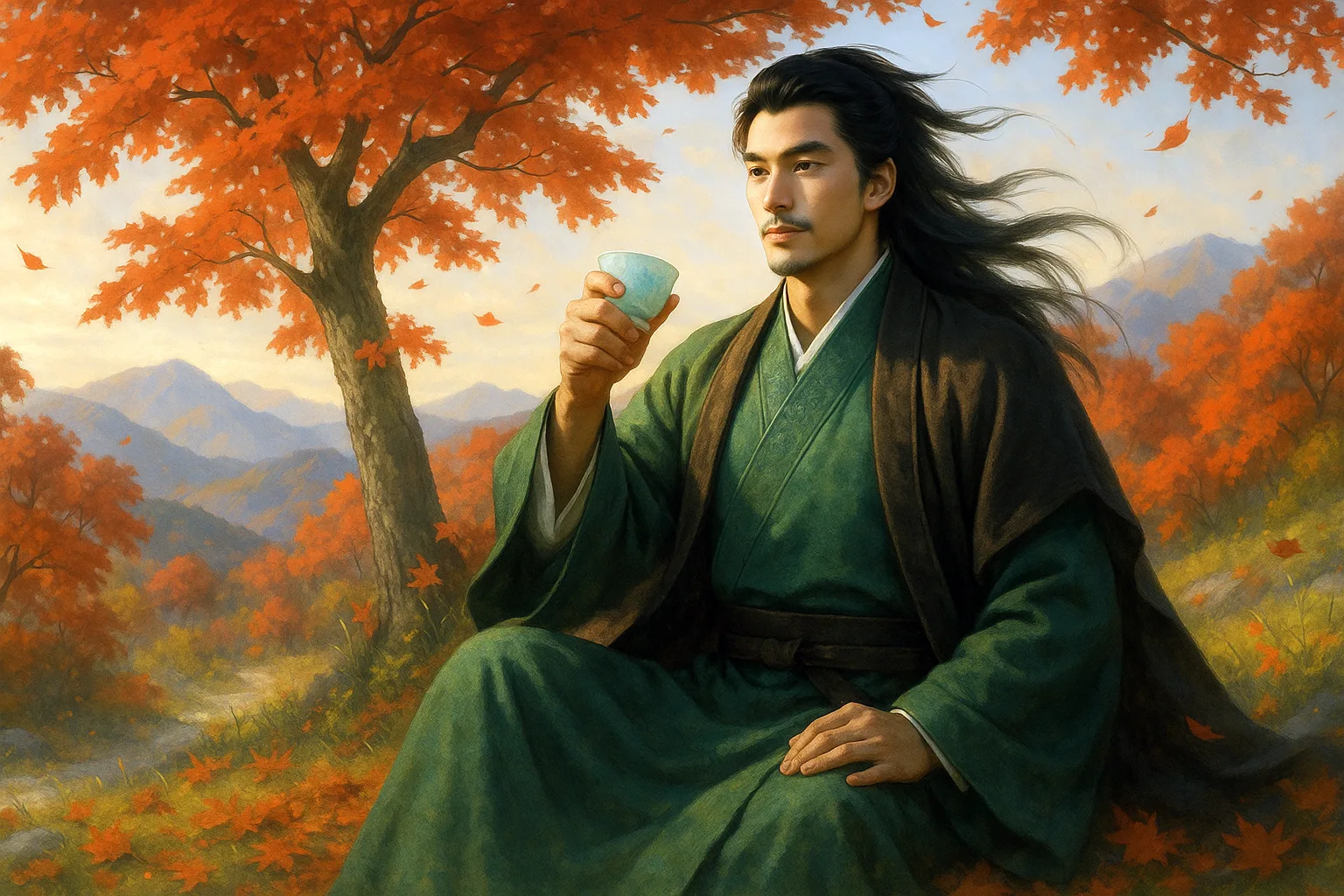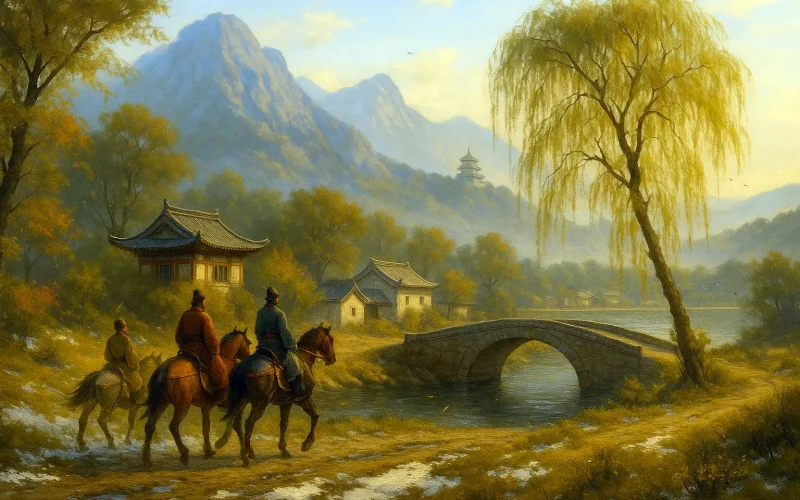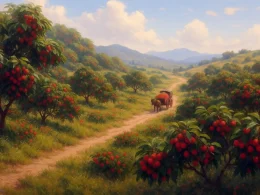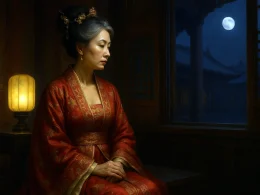The snow in warming sun has half melted away;
You who will go on fragrant grass hear your horse neigh.
Over the mountain path clouds veil the temple drear;
The willow tips caress the bridge on River Clear.
Your ideal will fly up as high as the wild geese;
My mind still flutters like a streamer in the breeze.
Coming together, I cannot go back with you.
How lonely I'd feel at home when spring comes anew!
Original Poem:
「宣州送裴坦判官往舒州时牧欲赴官归京」
杜牧
日暖泥融雪半消,行人芳草马声骄。
九华山路云遮寺,清弋江村柳拂桥。
君意如鸿高的的,我心悬旆正摇摇。
同来不得同归去,故国逢春一寂寥!
Interpretation:
This poem was written in the fourth year of the Kai Cheng era (839 AD), when Du Mu was about to return to the capital from Xuanzhou, and Pei Tan was about to head to Shuzhou to assume his post as judge. As a friend, Du Mu composed this poem to bid farewell to Pei Tan, expressing his sorrow and inner reluctance at the parting.
First line:“日暖泥融雪半消,行人芳草马声骄。”
(The warm sunlight melts the snow, half of it already gone; the sound of a rider’s horse hoofs mingles with the scent of blooming grass.)
This line paints a vivid picture of early spring, describing the warm sunlight and the melting snow. The sound of a horse's hooves and the fragrant grass create a lively atmosphere, subtly reflecting the feelings of parting without directly stating them.
Second line:“九华山路云遮寺,清弋江村柳拂桥。”
(On the road to Mount Jiuhua, clouds obscure the temple, and in the village by the Qingyi River, willows gently brush the bridge.)
This line offers a description of the landscapes Pei Tan will encounter on his journey, with specific references to Mount Jiuhua and Qingyi River Village. The images evoke a sense of place, adding to the overall atmosphere of departure and showing the poet's concern for his friend's journey.
Third line:“君意如鸿高的的,我心悬旆正摇摇。”
(Your ambition is as lofty as a wild goose flying high; my heart hangs like a flag, swaying in the wind.)
Through this comparison, Du Mu contrasts the different states of mind between him and Pei Tan. Pei Tan is filled with confidence and purpose, while Du Mu’s heart is unsteady, swaying in uncertainty. This highlights the poet's inner loneliness and sense of vulnerability.
Fourth line:“同来不得同归去,故国逢春一寂寥!”
(Though we came together, we cannot return together; my homeland welcomes spring, yet it feels lonely and desolate.)
This line expresses Du Mu’s sorrow at the impending separation from his friend and his return to the solitary capital. The juxtaposition of the vibrant spring in his homeland with the feeling of loneliness emphasizes the poet's deep emotional struggle with the upcoming parting.
Writing Characteristics
- Integration of Landscape and Emotion
The poet skillfully uses the natural scenes to mirror his emotional state, from the early spring weather to the journey ahead of Pei Tan. Each image in the landscape connects with the poet's feelings, making the emotional depth of the poem feel more palpable. - Sharp Contrast, Deep Emotion
The contrast between Pei Tan’s lofty ambition and Du Mu’s unsteady heart in the line “君意如鸿高的的,我心悬旆正摇摇” highlights the difference in their emotional states. Pei Tan is confident and determined, while Du Mu feels lost and uncertain. This stark contrast deepens the emotional impact of the poem. - Harmonious Blend of Emotion and Setting
By describing vivid spring scenery alongside his inner sense of loneliness, Du Mu creates a powerful emotional contrast. The imagery of nature amplifies the poet’s emotional turmoil, making the poem’s message more resonant.
Overall Appreciation
This poem uses descriptions of spring to emphasize the emotions of parting. Amid the lively scenes of Jiangnan in spring, the poet’s heart is heavy with sorrow, creating a sharp contrast between external vitality and internal loneliness. The rich descriptions of nature intensify the pain of departure, while the interplay of scenery and emotion brings the feeling of separation to life. The cyclical rhythm of the verses strengthens the emotional resonance, making the sentiment of parting vivid and memorable.
Inspiration
This poem reminds us that departures in life often come with complex emotions. While the outside world may be full of energy, the loneliness within can become more pronounced, making the emotional contrast even more poignant. The vivid descriptions of the changing seasons also reflect the fluctuations of the human heart, offering us a chance to observe and reflect on our own emotions in everyday life.
Poem translator:
Xu Yuan-chong (许渊冲)
About the poet:

Du Mu (杜牧), 803-853 AD, was a native of Xi'an, Shaanxi Province. Among the poets of the Late Tang Dynasty, he was one of those who had his own characteristics, and later people called Li Shangyin and Du Mu as "Little Li and Du". His poems are bright and colorful.












